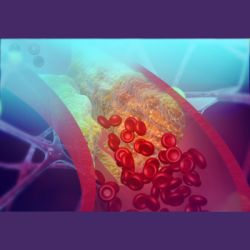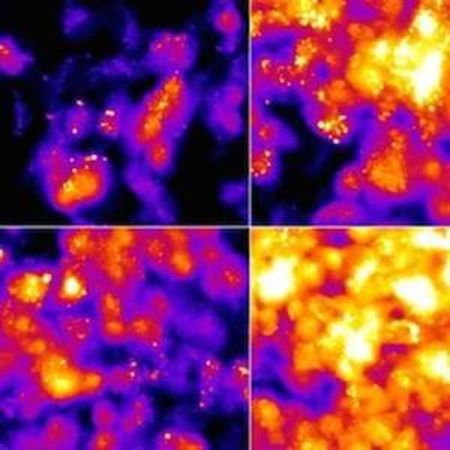A paper published in Nature Reviews Clinical Oncology recommends a global standard for scanning biomarkers in cancer, in a move designed to bring research closer to clinical practice. “New imaging bioamrkers need to be established either as useful tools for testing research hypotheses in clinical trials and research studies, or as clinical decision-making tools for use in healthcare, by crossing 'translational gaps' through validation and qualification,” say the authors.
 “If these recommendations raise the bar in imaging research, we can expect scans to play a much greater role in personalised medicine and to further improve the lives of patients with cancer having cutting edge therapies,” said Dr James O’Connor (pictured), Cancer Research UK scientist and lead author at the University of Manchester, in a media release. In an email to HealthManagement.org O’Connor explained that currently too few new ideas about oncologic imaging get turned into tests that are used in the clinic by doctors to help guide patient treatment. "No one has ever made a concerted effort to ask why there is a problem and provide a series of steps that may solve this problem,” he added.
“If these recommendations raise the bar in imaging research, we can expect scans to play a much greater role in personalised medicine and to further improve the lives of patients with cancer having cutting edge therapies,” said Dr James O’Connor (pictured), Cancer Research UK scientist and lead author at the University of Manchester, in a media release. In an email to HealthManagement.org O’Connor explained that currently too few new ideas about oncologic imaging get turned into tests that are used in the clinic by doctors to help guide patient treatment. "No one has ever made a concerted effort to ask why there is a problem and provide a series of steps that may solve this problem,” he added.
78 experts from Europe and North America were asked by Cancer Research UK and the European Organisation for Research and Treatment of Cancer (EORTC) to explore the difficulties getting tests adopted in the clinic. The consensus group set out 14 recommendations to help accelerate the translation of these ideas into validated tests. The recommendations cover grant submissions, reproducible results, comparing scans with other tests such as liquid biopsy, and cost-effectiveness.
As an, trials for antiangiogenics have shown great promise. Advanced scanning can detect when these drugs are working in patients. But at the moment, methodologies vary greatly across hospitals and this stops these techniques being widely used in the clinic. If all machines from different manufacturers are calibrated in the same way across different hospitals, larger clinical trials could be more easily set up to produce more powerful evidence to show if new scanning techniques are effective.
See Also: Combining Imaging and Maths in BRIM Breast Cancer Biomarker
Jamie Meredith, Cancer Research UK’s Head of Therapeutic Discovery Funding, said: “We want to make sure that the research we fund makes it to patients. An internationally agreed approach to accelerate the development and clinical use of imaging technology, could make us far more effective at diagnosing and tracking the disease."
Yan Liu, EORTC’s Clinical Leader for the Medical and TRI Department said: “Academic research can play a critical role in ensuring fundamental research and technological innovation reach patients. This collaboration is a great example of how organisations can bring expertise together to identify and resolve issues in getting the imaging biomarkers introduced into clinical practice to make a bigger impact on people’s lives.”
The review was conducted by EORTC and funded by Cancer Research UK, Engineering and Physical Sciences Research Council and supported by the Innovative Medicines Initiative Joint Undertaking (www.imi.europa.eu (link is external)) under grant agreement number 115151 – QuIC-ConCePT.
Source and image credit: Cancer Research UK
 “If these recommendations raise the bar in imaging research, we can expect scans to play a much greater role in personalised medicine and to further improve the lives of patients with cancer having cutting edge therapies,” said Dr James O’Connor (pictured), Cancer Research UK scientist and lead author at the University of Manchester, in a media release. In an email to HealthManagement.org O’Connor explained that currently too few new ideas about oncologic imaging get turned into tests that are used in the clinic by doctors to help guide patient treatment. "No one has ever made a concerted effort to ask why there is a problem and provide a series of steps that may solve this problem,” he added.
“If these recommendations raise the bar in imaging research, we can expect scans to play a much greater role in personalised medicine and to further improve the lives of patients with cancer having cutting edge therapies,” said Dr James O’Connor (pictured), Cancer Research UK scientist and lead author at the University of Manchester, in a media release. In an email to HealthManagement.org O’Connor explained that currently too few new ideas about oncologic imaging get turned into tests that are used in the clinic by doctors to help guide patient treatment. "No one has ever made a concerted effort to ask why there is a problem and provide a series of steps that may solve this problem,” he added. 78 experts from Europe and North America were asked by Cancer Research UK and the European Organisation for Research and Treatment of Cancer (EORTC) to explore the difficulties getting tests adopted in the clinic. The consensus group set out 14 recommendations to help accelerate the translation of these ideas into validated tests. The recommendations cover grant submissions, reproducible results, comparing scans with other tests such as liquid biopsy, and cost-effectiveness.
As an, trials for antiangiogenics have shown great promise. Advanced scanning can detect when these drugs are working in patients. But at the moment, methodologies vary greatly across hospitals and this stops these techniques being widely used in the clinic. If all machines from different manufacturers are calibrated in the same way across different hospitals, larger clinical trials could be more easily set up to produce more powerful evidence to show if new scanning techniques are effective.
See Also: Combining Imaging and Maths in BRIM Breast Cancer Biomarker
Jamie Meredith, Cancer Research UK’s Head of Therapeutic Discovery Funding, said: “We want to make sure that the research we fund makes it to patients. An internationally agreed approach to accelerate the development and clinical use of imaging technology, could make us far more effective at diagnosing and tracking the disease."
Yan Liu, EORTC’s Clinical Leader for the Medical and TRI Department said: “Academic research can play a critical role in ensuring fundamental research and technological innovation reach patients. This collaboration is a great example of how organisations can bring expertise together to identify and resolve issues in getting the imaging biomarkers introduced into clinical practice to make a bigger impact on people’s lives.”
The review was conducted by EORTC and funded by Cancer Research UK, Engineering and Physical Sciences Research Council and supported by the Innovative Medicines Initiative Joint Undertaking (www.imi.europa.eu (link is external)) under grant agreement number 115151 – QuIC-ConCePT.
Next Steps
The recommendations are being discussed at major international conferences.Source and image credit: Cancer Research UK
References:
O'Connor JP, Aboagye EO, Adams JE, Aerts HJ, Barrington SF, Beer AJ, Boellaard R, Bohndiek SE, Brady M, Brown G, Buckley DL, Chenevert TL, Clarke LP, Collette S, Cook GJ, deSouza NM, Dickson JC, Dive C, Evelhoch JL, Faivre-Finn C, Gallagher FA, Gilbert FJ, Gillies RJ, Goh V, Griffiths JR, Groves AM, Halligan S, Harris AL, Hawkes DJ, Hoekstra OS, Huang EP, Hutton BF, Jackson EF, Jayson GC, Jones A, Koh DM, Lacombe D, Lambin P, Lassau N, Leach MO, Lee TY, Leen EL, Lewis JS, Liu Y, Lythgoe MF, Manoharan P, Maxwell RJ, Miles KA, Morgan B, Morris S, Ng T, Padhani AR, Parker GJ, Partridge M, Pathak AP, Peet AC, Punwani S, Reynolds AR, Robinson SP, Shankar LK, Sharma RA, Soloviev D, Stroobants S, Sullivan DC, Taylor SA, Tofts PS, Tozer GM, van Herk M, Walker-Samuel S, Wason J, Williams KJ, Workman P, Yankeelov TE, Brindle KM, McShane LM, Jackson A, Waterton JC (2016) Imaging biomarker roadmap for cancer studies. Nat Rev Clin Oncol, Oct 11. doi: 10.1038/nrclinonc.2016.162.
Latest Articles
imaging, biomarkers, research
A paper published in Nature Review Clinical Oncology recommends a global standard for scanning biomarkers in cancer in a move designed to bring research closer to clinical practice.



























